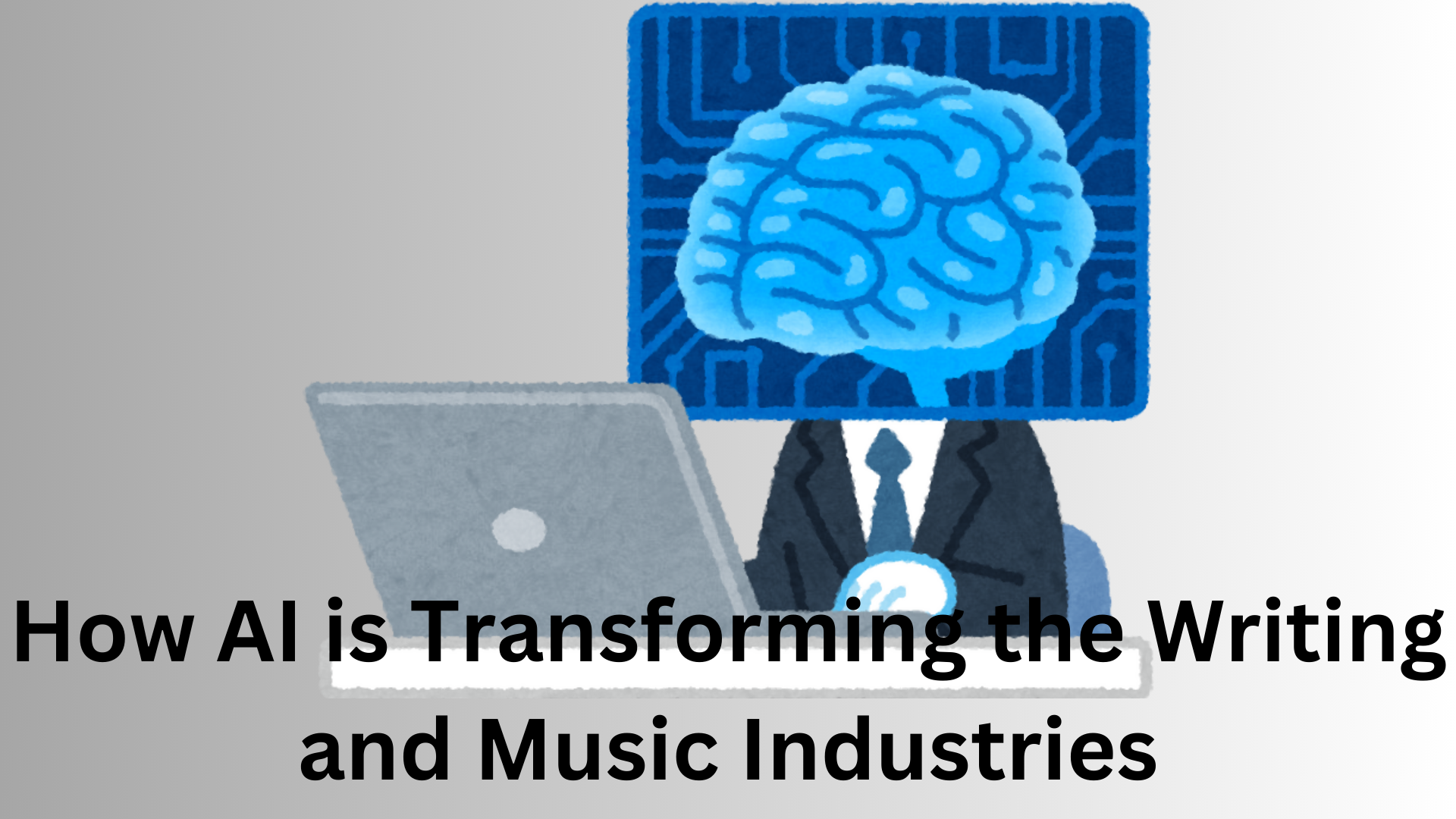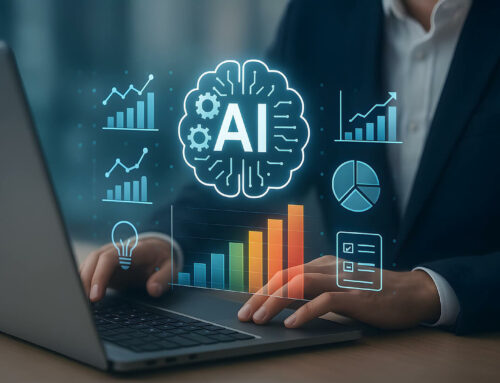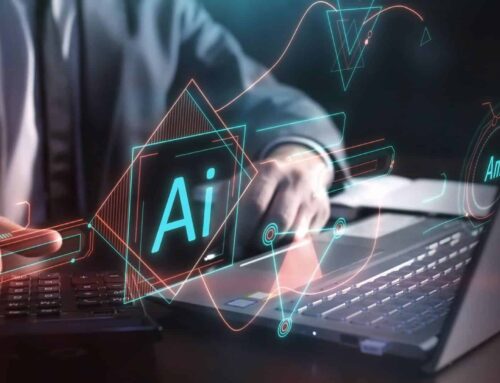The rise of AI text generators is making a big splash in the job market. These tools, using advanced machine learning algorithms, can create human-like text from simple prompts. They’re becoming more popular in many areas, like content creation, customer service, and even the AI in music industry. But what does this mean for the future of work? Let’s look at how AI text generators are affecting jobs, the new opportunities they might bring, and how people and organizations can get ready for these changes.

How AI is Revolutionizing the Writing and Music Industry by Creating Songs Using AI
AI technology is making a big difference in the way we write. With the help of an AI tool, writers can now easily generate content, find the right words, and improve their overall writing quality. This use of AI is not just limited to professional writers but also helps students, bloggers, and anyone who loves to write. Furthermore, tools like YouTube Video Summarizer make it easier to extract key points from video content, saving time and enhancing understanding. Additionally, the impact of AI extends to various fields, including the AI in the music industry, where it is transforming how music is composed, produced, and consumed.
In 2023, we have seen a huge surge in AI-generated content. These tools are becoming smarter and more intuitive, making it easier for writers to create engaging stories and articles. The use of AI in writing is similar to its use in the AI in music industry, where AI helps in music composition, AI generated sound-effects, melody creation, and even in vocals and music production. Both fields are experiencing significant transformations as AI technology continues to evolve, offering new possibilities and efficiencies while still requiring the unique touch of human creativity.
Streaming platforms are also taking advantage of Artificial Intelligence technology to recommend music and content to users. Songwriters and musicians can use AI tools to generate new ideas, write lyrics, and even produce music tracks. This generative approach not only saves time but also opens up new creative possibilities for artists.
How Can AI Text Generators Be Used as a Creative Tool for Artists, Writers, and Musicians?
AI text generators can be incredibly useful for artists, writers, and musicians. They can help overcome creative blocks, generate fresh ideas, and offer new perspectives. For instance, a writer struggling with writer’s block can use an AI text generator to get suggestions for plot twists or dialogue. Musicians can use these tools to come up with lyrics or even entire songs.
Alex Franklin, Co-founder and Director at A.M. Custom Clothing, the UK’s leading supplier of sustainable and ethical custom-branded clothing, says, “AI text generators can be used as a tool for assisting creatives of any sort. If we zoom in on musicians, it could be used to help refine a bar in a song or help them find the right words for something that they’re struggling with. It’s not about taking away the human element or expression, but helping them to extract that from their mind as effectively and efficiently as possible. It’s ultimately a tool to support them, rather than to think for them.
In our work, we’ve heard of clients using AI text generators to support them with a wide range of elements associated with their merchandise. We’ve seen them refine slogans or text on a T-shirt, right through to optimising product descriptions and CTA’s. This is really helpful for artists, musicians and bands as you can plug knowledge or resource gaps, for example,
they may not know how to optimise product descriptions for conversions, AI text generators can provide valuable support in that area.”
What Are the Ethical Considerations of Using AI to Create Art, and How Do We Distinguish Between Human and AI-Generated Works?
Using AI to create art raises several ethical questions. One major concern is the originality and ownership of AI-generated works. If an AI generates a piece of art, who owns it? Is it the person who used the AI, the developers who created the AI, or the AI itself?
Alex Franklin shares his thoughts: “This subject is very nuanced and contextual to the situation. For example, using AI to optimise the call-to-action button on your e-commerce website, for your band T-shirts wouldn’t typically be considered unethical. But conversely having an entire song written by AI and then crediting it as your own writing would be.
In our work we’ve seen brands and bands create imagery to go on album covers and T-shirts, and have found it’s created more positive publicity and interest when they’ve been open about the use of AI. This shows for the most part transparency is the key to staying on the right side of the ethical lines. More recently we saw Chris Williamson’s brand Neutonic state they used AI to support the creation of the eye logo on their cans (source: https://www.youtube.com/watch?v=QRPQFhp-vfM).
When it comes to distinguishing between both AI and human work, the lines will become increasingly blurred as AI integrates further into our lives, making transparency even more important than ever.”
Can AI Truly Capture the Essence of Human Emotions and Experiences in Artistic Expression?
One of the biggest debates about AI in the arts is whether it can truly capture human emotions and experiences. While AI can generate text that mimics human language, some argue that it lacks the depth and understanding to convey genuine emotions.
“AI is getting increasingly better at creating content that resonates with humans and their emotions. Our trivial experience of this has been seeing AI-written calls to action that convert better than human-written calls to action in a marketing context. But while AI can create content that resonates, it cannot create the connection that artists do with their fans, nor have the story that comes with the art. With this in mind, whether it’s a design for a T-shirt or lyrics to a song, the human element will always be critical, as the story is almost as powerful as the art itself.” says Alex Franklin.
How to Use AI Tools for Enhancing Content Creation and Music Production
The capabilities of AI writing tools are constantly evolving. These tools are now more advanced and can assist writers in many ways. From helping with grammar and style to suggesting new ideas, AI tools make the creative process smoother. Independent artists, writers, and musicians, especially in the AI in music industry, can all benefit from these advancements.
AI in music industry has also seen significant growth. Musicians use AI tools for musicians to produce music, create new music, and even enhance their songwriting skills. Here are some ways AI algorithms and generative AI are transforming music creation:
- AI tools like those used in Spotify and Apple Music help in recommending songs.
- AI could assist in generating unique melodies and harmonies.
- Musicians use AI to create background scores and beats.
- AI algorithms help in analyzing music trends and listener preferences.
New AI tools like these are opening up exciting possibilities for independent artists. By integrating AI into their creative process, artists can explore new horizons and produce innovative content that stands out.
AI for Efficiency, Humans for Creativity: Finding the Right Balance
AI can make the creative process much more efficient, but the unique touch of human creativity remains crucial. With the power of AI, artists find that mundane tasks like editing, organizing, and idea generation become much simpler. This gives them more time to focus on creating fresh and innovative works. For instance, in the AI in music industry, AI-powered music tools can generate original melodies and harmonies, which independent musicians can then refine to their liking.
Using AI tools like ChatGPT, artists can brainstorm and overcome creative blocks. AI voice technology and machine learning assist in producing realistic vocals, helping artists create professional-quality tracks. Even popular artists like Drake and The Weeknd have started integrating AI into their music production, demonstrating how AI can boost creativity in the music industry.
By incorporating AI into their workflows, artists and musicians can achieve a balance that suits them best. AI handles repetitive and time-consuming tasks, giving artists more freedom to concentrate on creating compelling and original content. Embracing AI doesn’t mean losing the human element; rather, it means using technology to enhance the creative process. In the AI in music industry, for example, AI can assist with tasks like music composition and production, allowing musicians to focus on the emotional and artistic aspects of their work.
Preparing the Songwriters for AI-Powered Writing
As AI becomes more common in creative fields, it’s important to prepare everyone for these new tools and platforms. When it comes to AI, artists, writers, and musicians need to learn how to use these technologies effectively. For example, in the AI in music industry, new AI tools like AIVA can help make new music by generating original pieces of music. Using generative AI, artists can create fresh sounds and compositions, which can save them time and money.
AI tools can help isolate vocals or instruments, making it easier for artists to remix and produce music. The impact of AI on the music industry is significant, with artists like Drake benefiting from these advancements. AI as a tool can boost creativity and streamline the creative process. By embracing these applications of AI, artists can stay ahead in their fields and keep innovating. These tools can help artists achieve more in less time, leading to greater success and creativity.
Maintaining Fairness and Accuracy in AI-Generated Text for Producing Music
When using AI tools for creating text, it’s essential to ensure fairness and accuracy. While AI can assist in generating content based on vast amounts of data and user preferences, maintaining a human touch is crucial. AI-generated text should reflect the artist’s or writer’s creative vision and expression accurately. This ensures that recommendations on streaming platforms, visual art creations, and the AI in music industry are personalized and relevant, saving you a lot of time while maintaining the integrity of your creative process.
Ensuring Responsible Use of AI Writing Tools by Musicians Using AI in Music Industry
Using AI tools in creative processes comes with responsibilities to ensure they enhance rather than replace human creativity. AI presents exciting opportunities for artists, writers, and musicians, but it’s crucial to use it ethically and responsibly. Here are some ways to ensure the responsible use of AI writing tools, including those in the AI in music industry:
- Preserve Human Creativity: Use AI to enhance your creative process, not to replace originality.
- Experimentation: Allow AI to help you explore new musical ideas and styles.
- Ethical Considerations: Be mindful of the ethical implications of using AI-generated music.
- Credit and Attribution: Always credit AI tools appropriately when using AI-generated content.
- Quality Control: Ensure that AI-generated music meets your artistic standards and intentions.
Many AI uses, such as generating music or writing lyrics, can assist artists in producing original music or exploring new genres. Independent musicians, like those who created songs using John Lennon’s voice and the piano of Paul McCartney, are using AI to provide artists with innovative musical ideas. AI’s ability to generate “Heart on My Sleeve” original music on music streaming services can aid artists in their search for unique and imaginative content.

Use AI to Create, Innovate, and Inspire
Writecream AI is a versatile text-based AI tool similar to ChatGPT, designed to support users across various creative and professional tasks. Here are its features and benefits:
- Versatility: Writecream AI can assist with a wide range of tasks, from generating creative writing to helping with professional communication.
- AI in Music: It helps musicians and artists by generating lyrics, brainstorming song ideas, and assisting in writing music reviews.
- Enhanced Creativity: Artists can explore new concepts and refine their creative works with AI-generated suggestions.
- Efficiency: It speeds up the writing process, allowing artists to devote more time to their creative vision.
- Personalization: Writecream AI adjusts to user inputs, offering customized content that suits individual needs and styles.
Writecream AI seamlessly integrates into creative workflows, providing valuable support for music composition and other artistic endeavors.

